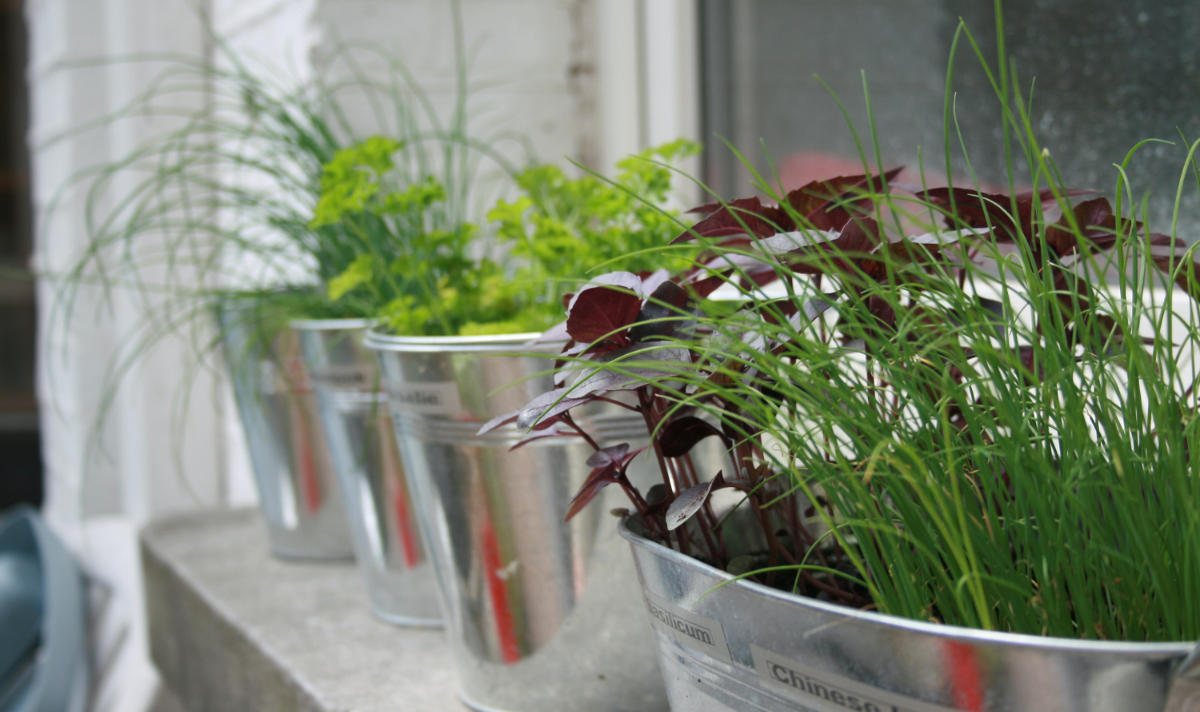It’s all very well when gardeners boast about the rich harvests and gluts of fruit and veg they’ve picked from their allotment, spacious raised beds, or voluminous vegetable plots at home – but vegetable, fruit and herb growing in small spaces is an altogether more challenging proposition.
So if you’re an urbanite with just a windowsill or ledge for veg growing space or all you have to work with is a tiny balcony or yard, what are your options?
Vegetable, fruit and herb growing in small spaces guide
This problem is tackled by garden expert and writer Alex Mitchell, whose new book – Crops In Tight Spots – offers tips on how you can get delicious results in even the smallest space. Here’s a sneak peek…
Time needed: 1 day
You’ll need to plan carefully, but you can make the most of a small area with our guide to vegetable, fruit and herb growing in small spaces Here’s our collection of ideas, advice and steps to take to grow your own salad, herb and veg crops no matter how small your space.
- Choose your containers carefully for vegetable, fruit and herb growing in small spaces
“You want containers which can retain as much water as possible. You can get window boxes with integral reservoirs with a section at the bottom where water will stay,” she advises. Add water-retaining granules to the compost, as well as seaweed meal or worm compost to bulk up and retain moisture.
“You can have window boxes made, and it may be worthwhile if you plan to stay in your property for some time to have a window box made to fit the exact dimensions of your sill or ledge,” Mitchell adds. “That way, you will fit the most in, your plants will be happier, and you won’t have to water them so often and they will look much better because they will fit the space very well.”
Consider placing a tray under your window box to retain excess water.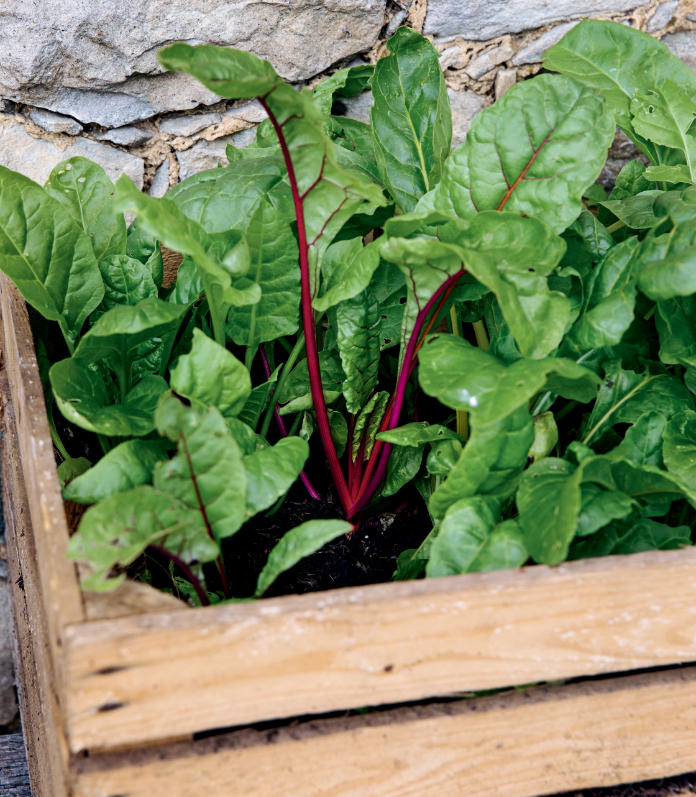
- Use recycled materials
“You can use metal, lining tins and cans with old bits of polystyrene packaging to line the inside to insulate them from the heat. I use catering sized tins, drilling holes in the bottom, which are quite easy to get hold of and provide the space to allow plants to grow,” she says.
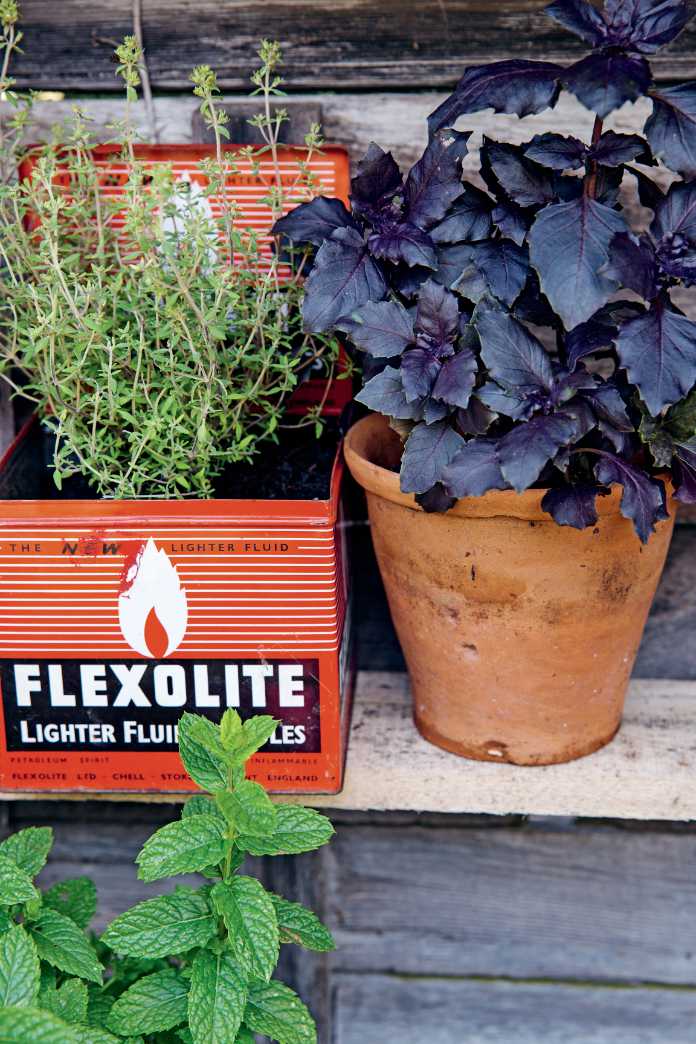
- Grow herbs and spices
Chillis, herbs, nasturtiums and chives will all grow well in large tins. Compact tomatoes like ‘Ponchi Re’ and ‘Ponchi Fa’ are ideal for window boxes too. Make sure the tomato variety is either a bush or tumbling. Thyme will withstand a smaller pot – you could put a row of those along a sill. Samphire is another ingredient which will grow well in a sunny spot in a confined space.
“I grew samphire, which was very easy. It grows in coastal salt marshes so it’s used to a lot of exposure, so a windy, sunny site is perfect for it. Water it with a little sea salt added to the water, to make it feel at home,” Mitchell advises. “It’s like a little succulent, which looks lovely. And it doesn’t need too much water. You can eat it raw or steam it.”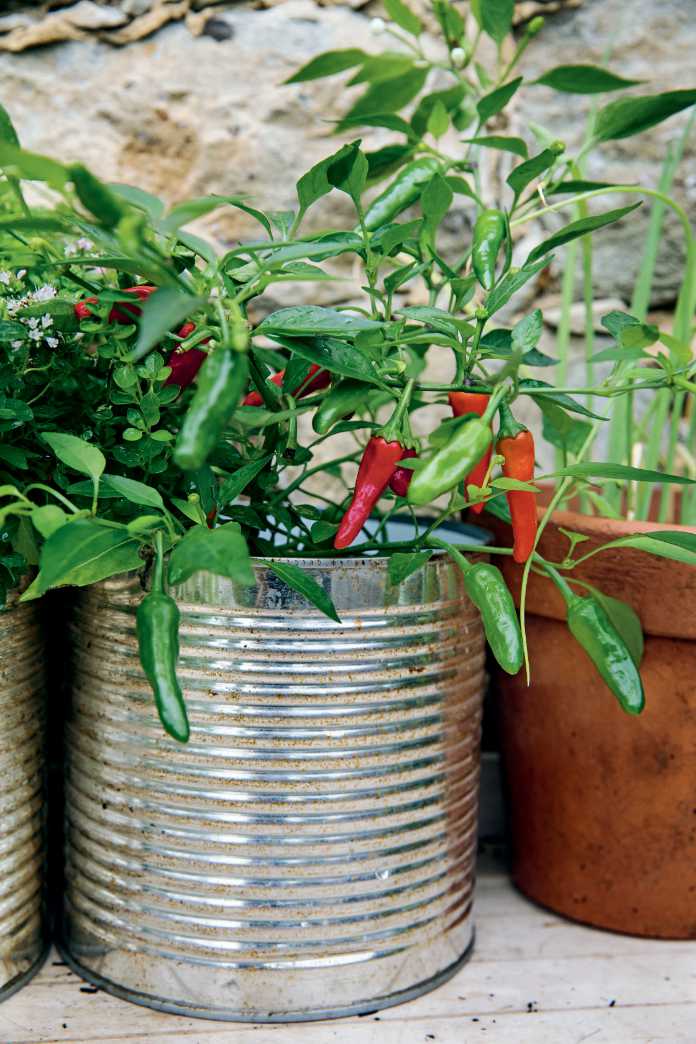
- Use shallow rooted plants in window boxes
Opt for herbs and baby salad leaves in a shallow window box, although be aware that the shallower it is, the quicker it will dry out. Mediterranean herbs like thyme or oregano are ideal, but not parsley, which has a tap root.
Edible shallow-rooted flowers like violas are also good mixed in, and chives can cope with drought conditions. Spring onions will do well without much water.
A display might include chives, little chillies like ‘Stumpy’ and ‘Apache’, with thyme underneath and violas. Also try perpetual spinach which won’t bolt, or add little tomatoes. Take chillies inside when the weather cools down and they should continue to flourish.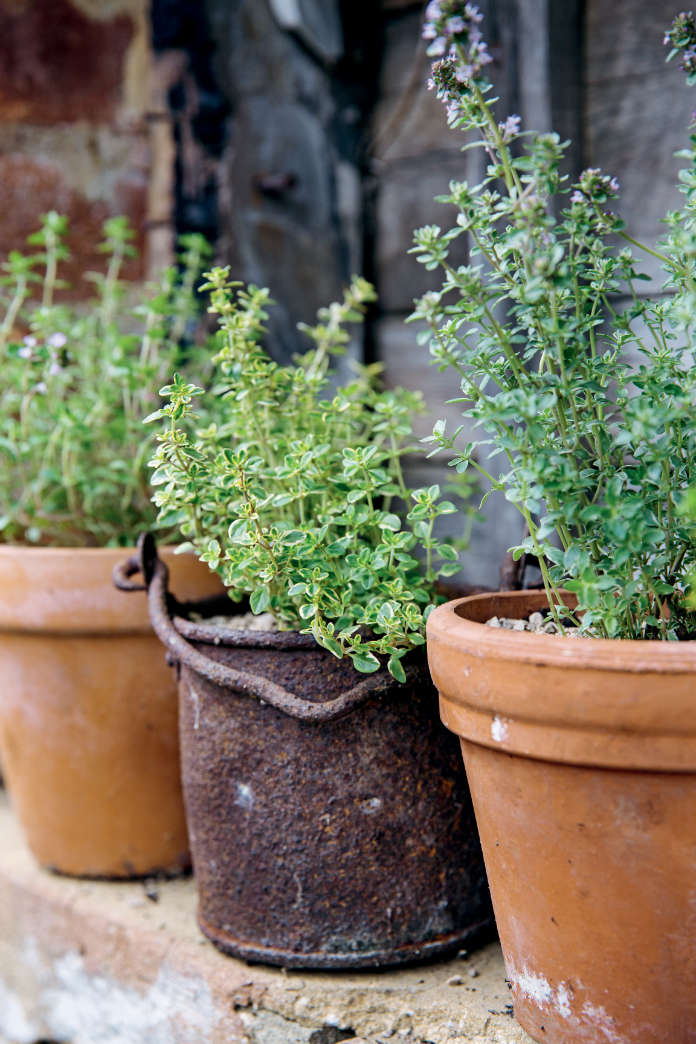
- Avoid plants which bolt (run to seed)
“I grew rocket one year and it looked awful in about a minute,” Mitchell recalls. “If you are growing baby salad leaves, pick them regularly and sow new seeds every couple of weeks for a succession of leaves. Keep that conveyor belt going so that you never have excess space.”
Radishes are also quick-growing, so you can be picking them for your salads and sowing more regularly. But put a tray underneath the pot to stop them from drying out and harvest them while they’re young, before they go woody.
Also avoid anything that’s going to grow too big (courgettes) or needs too much depth (potatoes).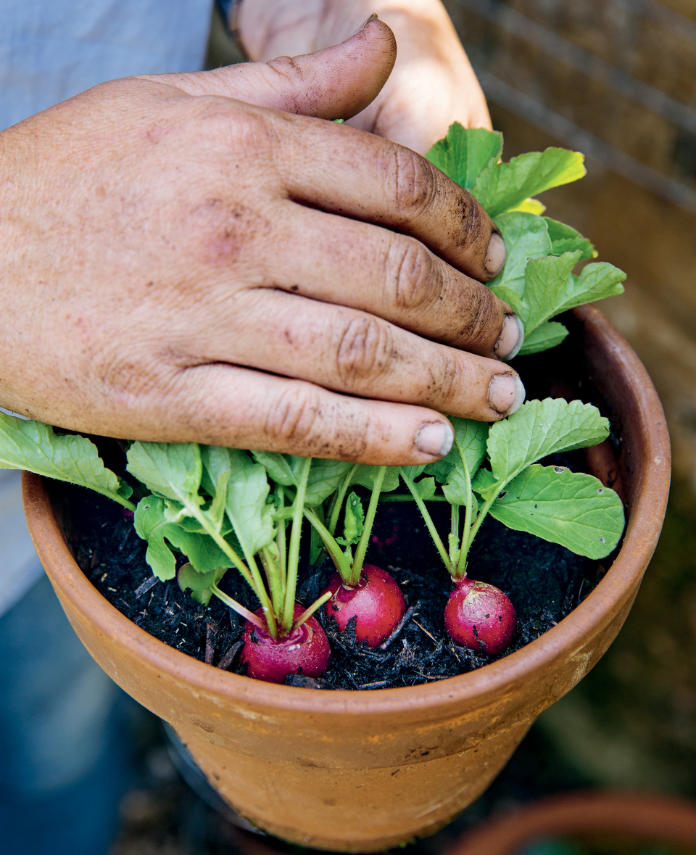
- Choose the right plant for shade
“Sorrel is OK in shade, as long as you eat the leaves when they are quite young. Mint is also good in shade but give it its own window box or it will invade other plants, or place it in its own pot where it can remain confined.
“Parsley and coriander will also be OK in shade – in fact, anything that produces a leaf rather than a flower will grow in shade, just not as quickly.”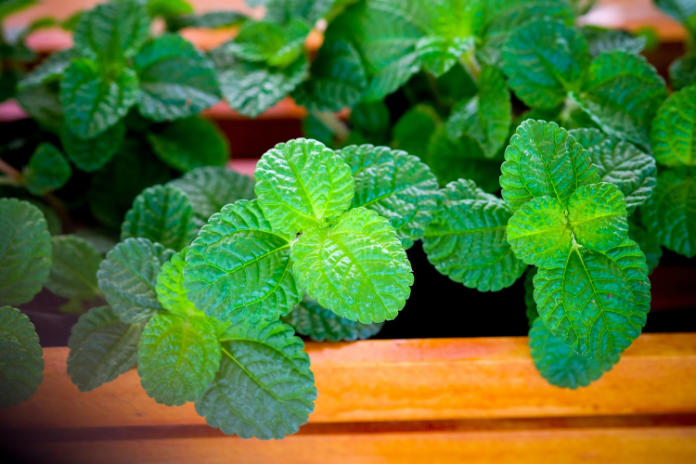
- Strawberries are your go-to fruit when growing veg in small spaces
Little pots of strawberries lined up are ornamental as well as delicious, but avoid trying to grow raspberries in a confined space – it just won’t work.
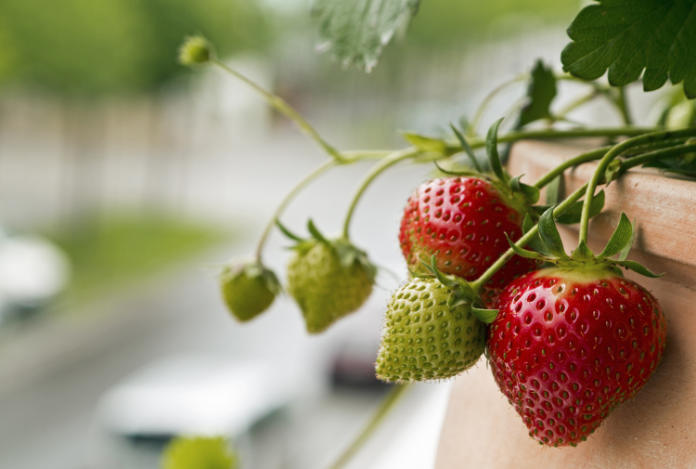
- Don’t let the roots dry out
Mitchell once used a nappy to line a hanging basket, and there’s nothing to stop you doing the same in a window box. People have also cut up old woollen jumpers to line containers.
- Choose the right compost when vegetable, fruit and herb growing in small spaces
If you’re growing herbs in a small container, Mitchell recommends John Innes No.2, mixed with a third of grit – thyme, oregano and rosemary prefer this mixture. For salad leaves and tomatoes, use multipurpose compost, and make sure you feed the plants as instructed on the packet.
“I make and use liquid seaweed feed for a lot of salad plants, and use tomato feed for tomatoes in my window box every couple of weeks. If you want to go organic use nettles, which you can steep in a bottle of water and then feed your plants with the liquid.”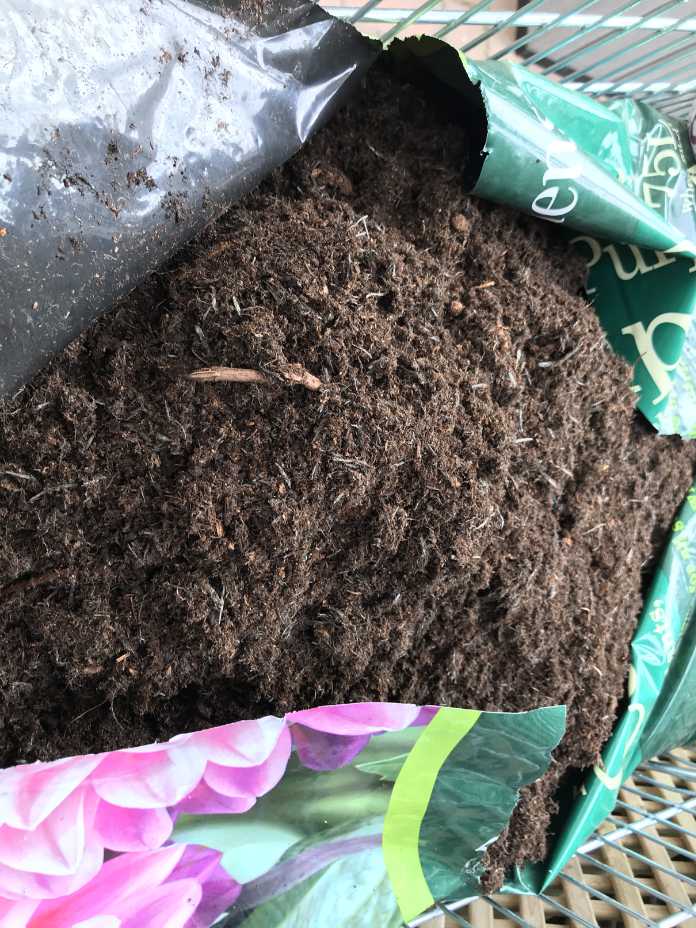
Crops In Tight Spots by Alex Mitchell is published by Kyle Books, priced £18.99. Available from Amazon.
This article may include affiliate links to products and services where we may receive a small fee to support the running of this site if you make a purchase or is a sponsored article from one of our select editorial partners providing valuable advice and information to our readers.























































